Carleton University is deeply committed to promoting social, economic, and environmental sustainability in both our built and natural environments. As part of our efforts to support Sustainable Development Goal 9, we strive to develop quality, reliable, sustainable, and resilient infrastructure on campus. Our aim is to showcase our sustainability leadership by exploring new and innovative ways to design and maintain sustainable buildings that align with our values.
STRATEGIC ACTIONS: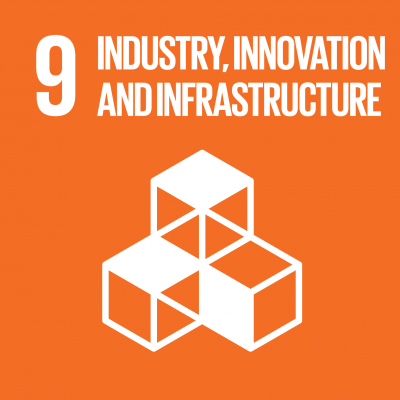
- Develop, renovate, and maintain buildings in ways that achieve best practices, innovation, and cost-effective environmentally sustainable design.
- Pursue external third-party certification, such as Green Globes, for all new construction and major renovation projects.
- Maximize the use of green space on campus and maintain university grounds in an environmentally sensitive way, taking into consideration the enhancement of local ecosystems, the use of native species, and the promotion of growing food on campus.
- Enhance conservation and biodiversity outcomes through campus management and increase communication and engagement towards biodiversity efforts.
- Ensure adequate prioritization for maintaining buildings and assets based on risk and life-cycle cost analysis.
Carleton University is committed to ensuring that all new construction and major renovations achieve a minimum rating of 3 out of 5 globes using the Green Globes Rating system (or equivalent third-party certification). To date, 11 buildings on campus have been rated. The case studies for some of these buildings are outlined below:
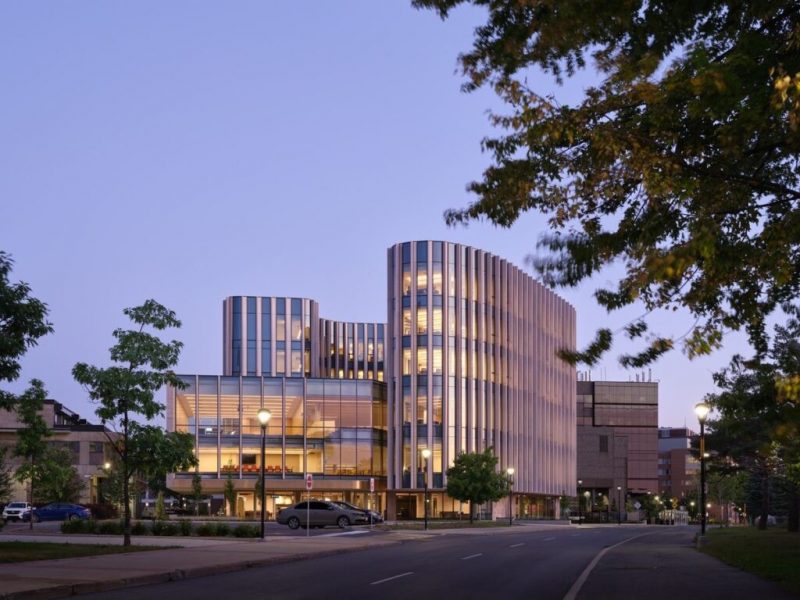
Nicol Building - 4 Green Globes
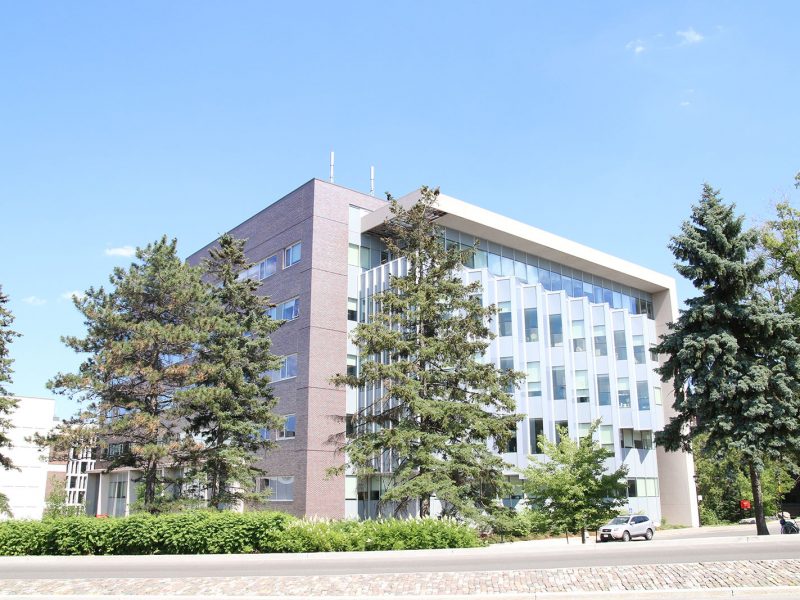
Canal Building - 4 Green Globes
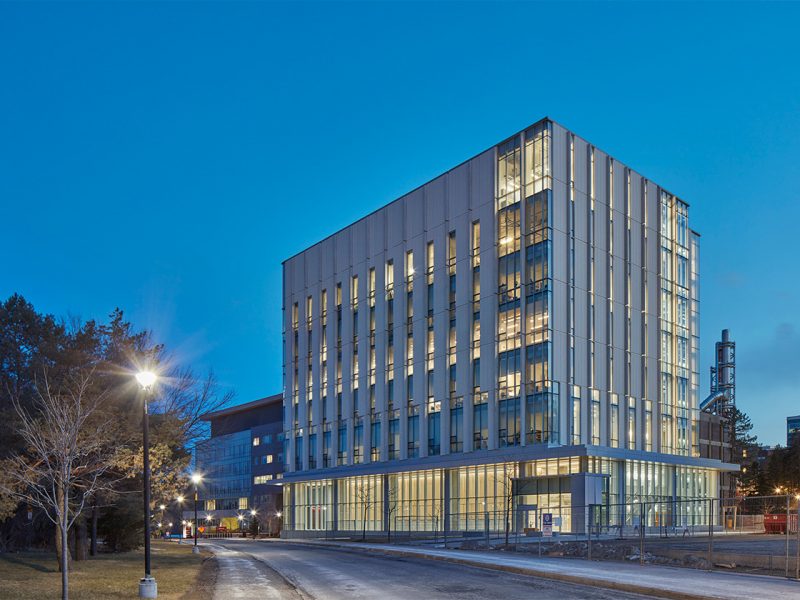
Health Sciences – 4 Green Globes
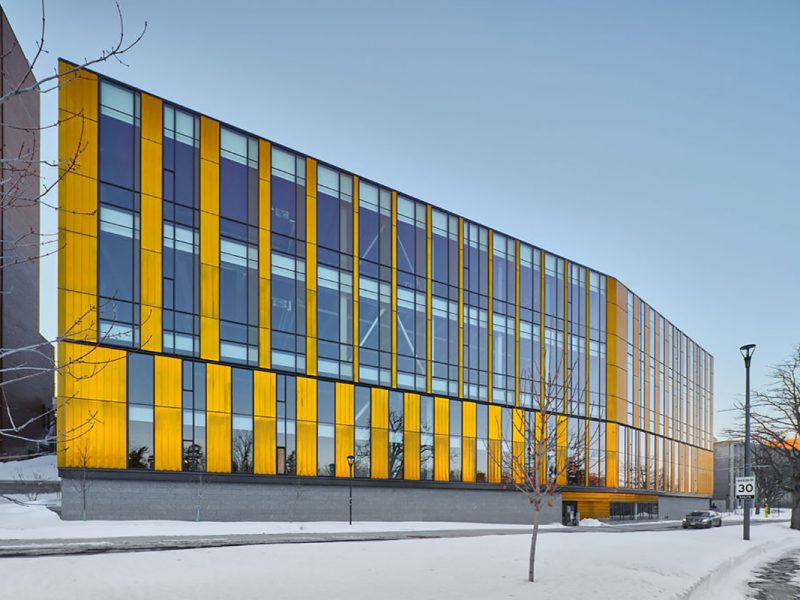
ARISE – 4 Green Globes
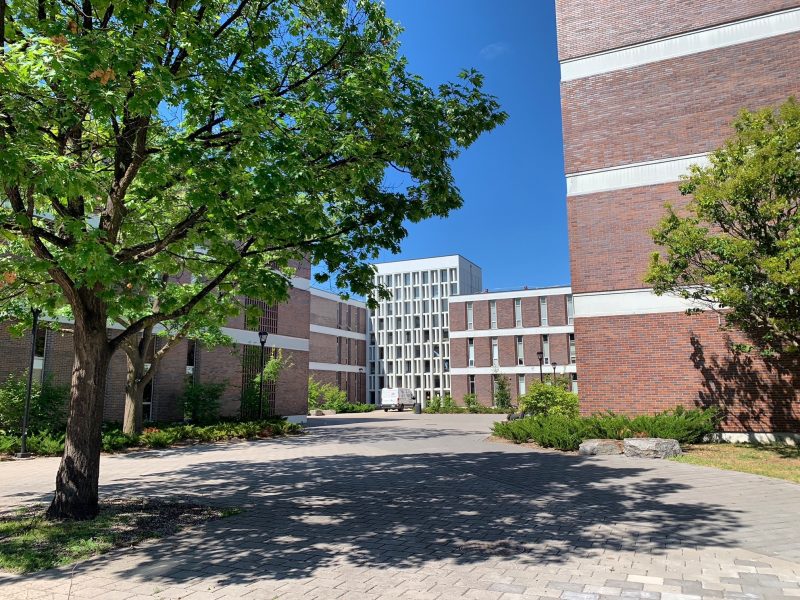
Russell-Grenville – 4 Green Globes
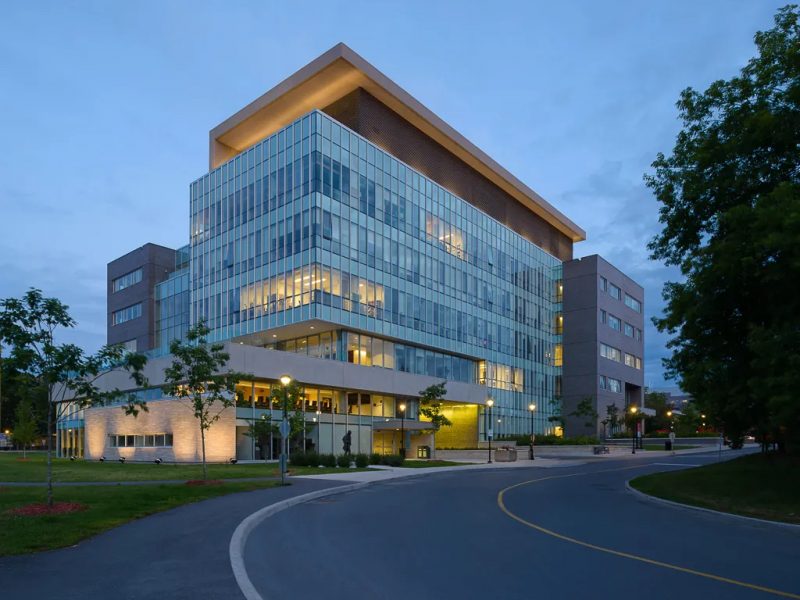
Richcraft Hall – 4 Green Globes
Full List of Green Globe Certified Buildings at Carleton University
- Canal Building – 5 Green Globes
- Frontenac Residence – 3 Green Globes
- Herzberg Laboratory Addition – 4 Green Globes
- Lennox-Addington – 3 Green Globes
- MacOdrum Library – 3 Green Globes
- Teraanga Commons (previously Residence Commons) – 4 Green Globes
- Richcraft Hall – 4 Green Globes
- Russell-Grenville – 4 Green Globes
- ARISE – 4 Green Globes
- Health Sciences – 4 Green Globes
- Nicol Building (Sprott School of Business) – 4 Green Globes
The first major renovation to be assessed was the renovation of Russell-Grenville houses in the summer of 2010. As an example of the positive impact, there has been a 69 percent drop in water consumption in those two residences. Going forward, as more buildings are renovated and new buildings are added, the overall impact of the built environment will continue to be reduced.
In 2009, Carleton University conducted a pilot project with Green Globes to develop an Environmental Assessment tool for university campuses. The result was a detailed report for each building at Carleton University, identifying factors such as water consumption, energy usage, electricity usage, and waste management. The report also provided a list of recommendations for improvements that would result in a more sustainable operation.
Statement of Land Acknowledgement
We wish to acknowledge this land on which Carleton University operates. The location of our campus is on the traditional, unceded territories of the Algonquin Anishinaabe nation. Carleton acknowledges it has a responsibility to the Omamiwininiwag (Algonquin people) and a responsibility to adhere to Algonquin cultural protocols. We also acknowledge the invaluable contributions of Algonquin stewardship over countless generations to the broader landscape of the Kitchissippi watershed, which encompasses the national capital region of Ottawa-Gatineau. Read about Carleton’s Statement of Land Acknowledgement.